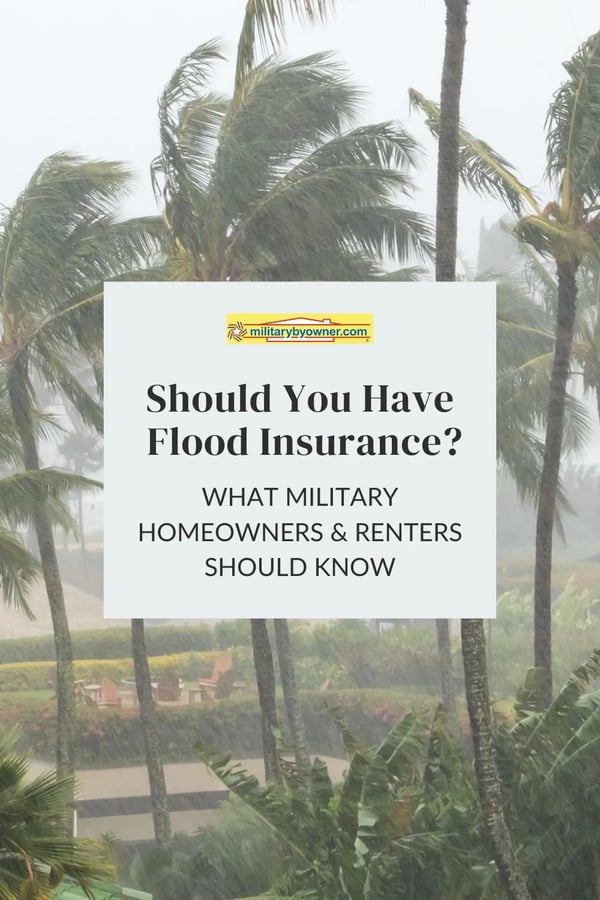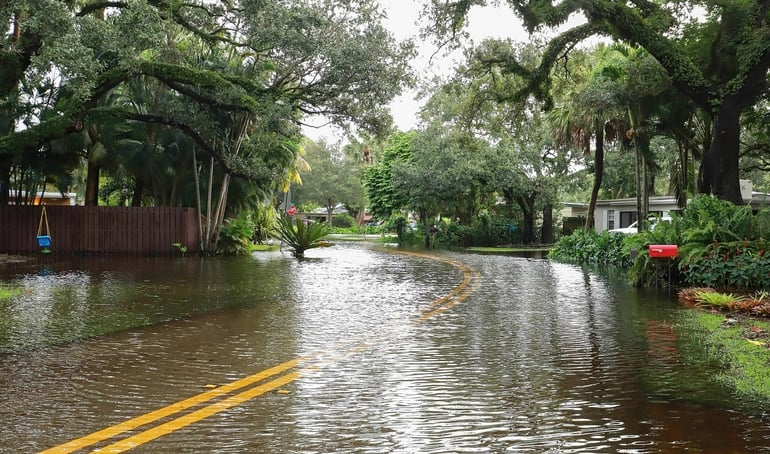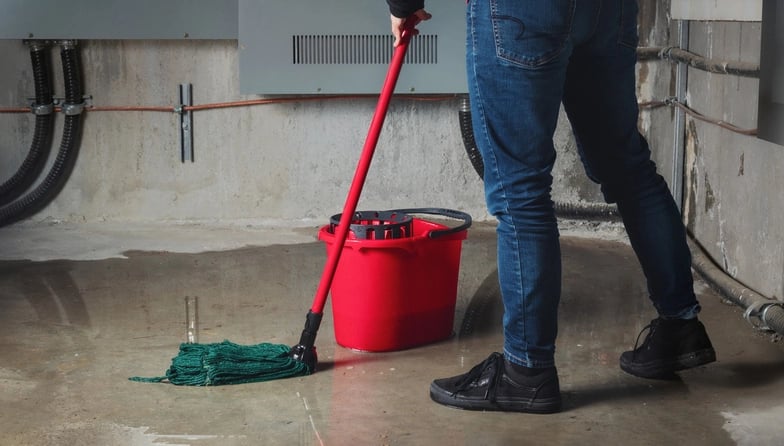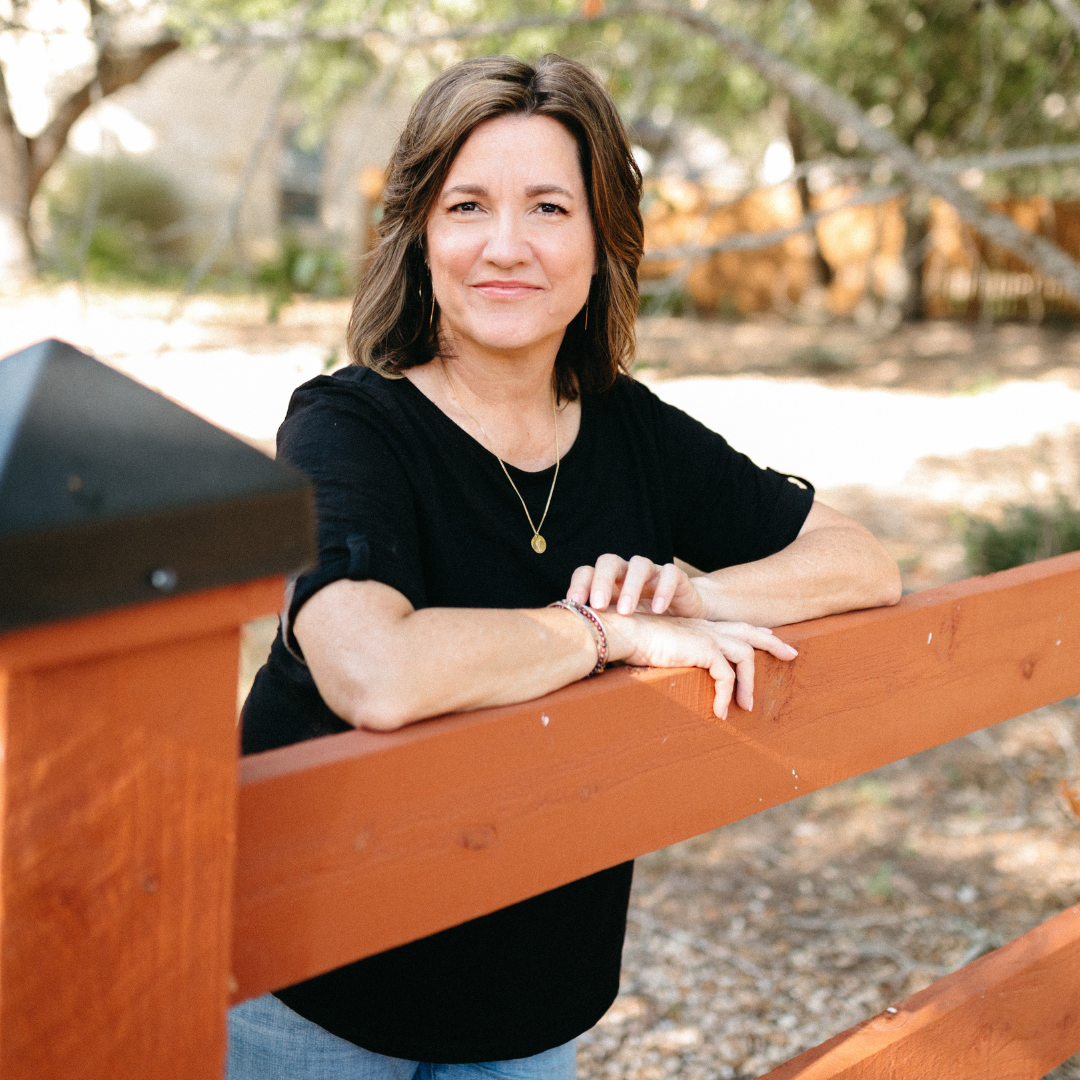What Military Homeowners and Renters Should Know About Flood Insurance
Early in my husband's military career, we opted to live in on-base military housing. One morning, I opened our outside storage room door to behold a shimmering pond of standing water. Horror struck, I realized that not only were several pieces of stored furniture ruined, boxes of keepsakes that hadn’t fit into our small housing unit were now sodden and unrecognizable. Overnight, heavy rains had caused flooding in the storage units located behind our base housing.
And while the sentimental items could never be replaced, our hopes were that we could recoup some of the other damages through the renters' insurance we’d purchased on moving in.
Wrong.
 Other military renters and first-time homeowners may assume, like we did, that flood damage is covered under a regular homeowners or renters insurance policy. Or they may think that since they don’t live in a typical “flood plain,” their belongings aren’t at risk and therefore they don’t need the additional coverage.
Other military renters and first-time homeowners may assume, like we did, that flood damage is covered under a regular homeowners or renters insurance policy. Or they may think that since they don’t live in a typical “flood plain,” their belongings aren’t at risk and therefore they don’t need the additional coverage.
While some types of water damage can be covered by an insurance policy, such as damage from a burst pipe or roof leak, there are events that are not covered by a standard homeowners' or renters' policy. This includes flood damage from hurricanes, tsunamis, storm surges; water from overflowing rivers, snowmelt, or heavy rain; water damage from "earth movement" (i.e., earthquake, landslide, mudslide); sump pump failure, and more. (Source)
To further clarify, Forbes Advisor shares:
Generally, water damage that is considered “sudden and accidental” is covered (like a burst pipe) but not gradual damage, like a leaking bathroom sink. And flooding is not covered, such as damage from storm surge during a hurricane.
And consider this: Just one inch of flood water can cause more than $25,000 in damage to a home.
 Photo from Canva
Photo from Canva
High-Risk Area Flood Insurance Requirements
“Homes and buildings in high-risk flood areas with mortgages from federally regulated or insured lenders are required to have flood insurance. In high-risk areas, there is at least a 1 in 4 chance of flooding during a 30-year mortgage.”
But what if you're located in a lower risk area? Should you still purchase flood insurance? What if you don't own the property—are your belongings eligible for insurance against flood loss?
For answers to questions like these, especially as they pertain to military homeowners and renters, including those living in military housing, we consulted with the experts at USAA. Justin Morgan, Product Management Director with USAA, provided us with the following information.
 Photo from Canva
Photo from Canva
Common Questions from Military Families About Flood Insurance
1) How do I purchase additional flood insurance?
Flood is specifically excluded under most homeowners insurance policies; often the only option for flood coverage is through the National Flood Insurance Program (NFIP).
2) Should renters or families living in military housing invest in flood insurance?
However, the above exclusion is not always the case with renters' insurance that covers personal property. Some renters' policies will include coverage for flood for an extra fee. It is always best to speak with a licensed insurance professional or agent to discuss what specific exclusions may or may not apply.
3) How do I find out if my property is in a high or low risk area?
Start here: Floodmart.gov. You should also contact your insurance agent or representative for specifics about your location.
4) For someone living in a low risk flood area, do you still recommend flood insurance? Why or why not?
In the past 5 years, all 50 states have experienced a flood or flash flood. As such, just because you live in a moderate to low risk area does not mean you cannot or will not experience a flood. Low risk does not equal no risk, as nearly 20% of all NFIP flood claims come from moderate to low risk areas.
Since your home and personal property are often your most valuable assets, it is important to seek coverage from flooding, even in low risk areas, to protect your financial security.
5) What do flood insurance policies cover? Is there a type of flood that is not covered?
Flood insurance can provide protection to the building itself, as well as personal contents. To review all the various coverage options and any possible exclusions that may apply, you should contact a licensed insurance professional.
Other important points from Morgan:
- There is typically a 30-day waiting period before your flood insurance policy goes into effect.
- Policy premiums will vary based on coverage selections, deductible options, and location, in addition to other factors.
Whether you're a renter, homeowner, or living in military housing, being armed with the most current information regarding property insurance will help you avoid needless loss such as our family experienced.
Subscribe to MilitaryByOwner's blog to receive daily, weekly, or monthly email notifications of the latest blog posts with more helpful information like this!





